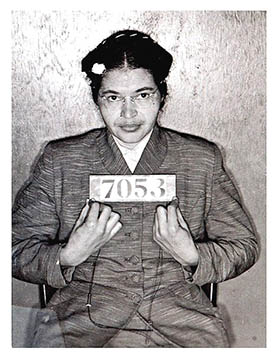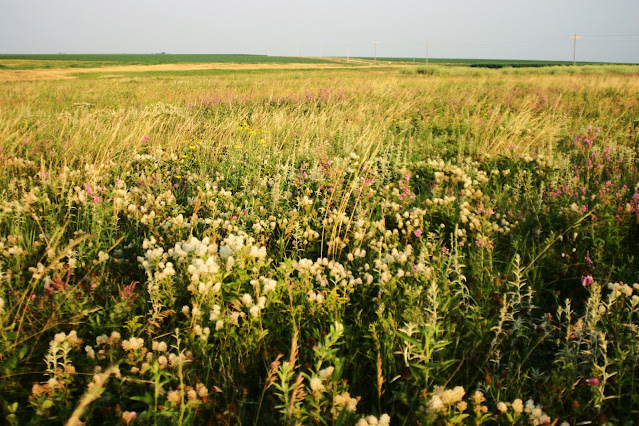Tonight the Dutch-American Heritage Museum (DAHM)will host a discussion of Black Soil (1930), Josephine Donovan's novel of early Sioux County, a book full tales of the very first of the Euro-American pioneers to create a life right here between the Big and the Little Sioux Rivers. This review (tomorrow too) appeared here three years ago, but still covers the subject. The truth is, I enjoyed Black Soil even more this time through.
 |
| The DAHM has a few actual original corn stalks from those early years. |
You sometimes wonder—or at least I do—if there will come a time when Sioux County, Iowa, has enough hog confinements. Industry is the name of the game here; the descendants of all those Dutch Calvinists could write primers on how to work, how to farm, and how to make money.
Confinements sit on every available hill, more than any other adjacent county, but then agriculture is a huge business here, empowering everything, keeping life afloat and a culture intact. It’s difficult to imagine the region in its wild, pristine state, almost impossible to think of the natural world as an antagonist. There’s hail and even a tornado or two; there are still almost unendurable winters, like this one may be; and torrid summers still create hot winds that once upon a time laid standing corn to waste in just a few days.
But to think of this world outside my window itself as some untamed wilderness, as a powerful force to be conquered is simply not possible in day when the best cabbed tractors are steered through the fields by satellite technology. In many ways, we’ve subdued the earth and done the Lord's bidding.
Maybe that’s why it took me half a novel to determine the central conflict when I started into reading Josephine Donovan’s Black Soil, her engaging rendition of the perilous settlement of this corner of the state, a region Fred Manfred named “Siouxland.” It’s just hard, 150 years later, to think of what she calls “the prairie” as a bleak and pitiless enemy.
But once upon a time, it was. Once upon a time, grasshoppers darkened the sky and devoured just about every living thing, engorging whole sections, mile after mile of farmland, making the earth seem to crawl. Once upon a time, the devastation they created brutal poverty no descendent can begin to imagine. Once upon a time, prairie fires ritually consumed the region. Once upon a time, life-and-death drama occurred on October stages all over the region. Once upon a time, white folks were scared to death of the Native people their own new homesteads unkindly dispossessed.
If you’ve read Giants in the Earth, the Rolvaag classic, nothing in Donovan’s Black Soil is going to be new or visionary. The gender differences are classic in what some call “Middle Border Lit”: men like Per Hansa and Tim Collins love the adventure, love opening the earth and making it abundant with row crops. Meanwhile, in a whole series of novels about homesteading, women felt abandoned beneath the eyes of a gargantuan sky on a land so bare there seemed no place to hide. What’s more, frontier life required abandoning families back home, meant endless sweat and none of the blessings of life in established communities back east.
Nell Connors, the woman at the heart of this 1930s novel, is just such a pioneer woman. She’s neither Dutch nor Luxembourgian, traditional Sioux County ethnics, but, oddly enough, Irish Catholic and a Yankee. Her roots are back east in Massachusetts, where she remembers visiting the most honorable Dickinson family in Amherst, including the ethereal Emily, whom she remembers as a poet.
Nell Connors is married to Tim, a wonderful man with a huge heart, a man not well suited to build the farming life at the edge of the frontier. He doesn’t lack ambition, but he’s not dedicated to making the work—or farming--as a profession. His eye is elsewhere. More than once I’ve heard old Iowa men talk about brothers who were sent off to school for the ministry or education once it became obvious to Ma and Pa that they didn’t have the wherewithal to farm. Tim Connors doesn’t either.
But it’s not her husband’s skewed predilections or laziness that brings Nell Connors grief; it’s the unspeakable realization that her children are walking off to school in bare feet and, once they get there, receiving a third-rate education, at best, in a world where it's far more important to milk than read poems.
It’s the sheer force of “the prairie” that she fights, that makes her wonder if Siouxland can ever become a home. When she sees a boy with artistic talent return from working cattle “out west,” swaggering as if he were little more than a chaw-spewing cowhand, she feels and fears the overwhelming power of open spaces. “A sadness came over Nell Connor as she walked back to the house,” Donovan writes. “Does the country make the man, or the man make the country?” Nell Connors’s fear is for what her children won’t have, what they’ll never experience, what they’ll miss out here on the hard-hearted Siouxland prairie.
The Dutch fare well in Black Soil. The novel is set somewhere near Primghar, where the locals watch Hollanders arriving in hoards at the western reaches of the county (“the Dutch are coming in thicker than hops!” someone reports). The Dutch, Nell says, are exceptionally clannish, more so than the Germans and the Luxembourgians; but they keep their towns and themselves clean and tidy, just like their farms. They work hard, and, in the novel at least, the occasional Hollander who wanders away from the colony and into foreign Siouxland regions always makes a good neighbor.







.jpg)

















.JPG)

.JPG)











